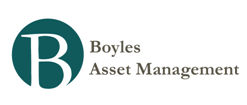The Absolute Return Letter - April 2010: When the Facts Change
We are currently in what I like to call echo bubble territory. I assume that most of our readers are familiar with the DNA of an asset bubble (even if Greenspan isn’t). Echo bubbles are children of primary asset bubbles and are usually conceived when monetary authorities respond to the bursting of an asset bubble by dramatically reducing policy rates.
In the current situation, banks have suffered the worst; low policy rates help banks rebuild their damaged balance sheets as they benefit from the steep yield curve. The dilemma now facing policy makers is that the extraordinarily low interest rates we currently enjoy are encouraging another bout of excessive risk taking before bank balance sheets have been restored and the economy is back on its feet again. If monetary authorities were to raise rates now in order to avoid the formation of echo bubbles, it would almost certainly kill the fledgling recovery. The pressure is therefore on them to keep rates low and for that very reason asset bubbles are often followed by echo bubbles.
- Gmo's Q1 Letter
Free registration may be required. Link to: Looking for Bubbles and In Defense of Risk Aversion GMO's 1Q 2014 Letter includes two pieces on bubbles by Jeremy Grantham ("Looking for Bubbles, Part 1: A Statistical Approach") and Edward Chancellor ("Looking...
- Bridgewater On The Fed's Dilemma
Via Zero Hedge: In the old days central banks moved interest rates to run monetary policy. By watching the flows, we could see how lowering interest rates stimulated the economy by 1) reducing debt service burdens which improved cash flows and spending,...
- Does Central Bank Independence Frustrate The Optimal Fiscal-monetary Policy Mix In A Liquidity Trap? – By Paul Mcculley And Zoltan Pozsar
Found via Calculated Risk. The United States and much of the developed world are in a liquidity trap. However, policymakers still have not embraced this diagnosis which is a problem as solutions to a liquidity trap require specific sets of policies. There...
- The Extraordinary Popular Delusion Of Bubble Spotting - By Jason Zweig
Can you spot a bubble? Ever since 1841, when a Scottish journalist named Charles Mackay published the book known today as "Extraordinary Popular Delusions and the Madness of Crowds," the answer has seemed clear. If you watch carefully for signs of euphoria,...
- Easy Money, Hard Truths – By David Einhorn
Are you worried that we are passing our debt on to future generations? Well, you need not worry. Before this recession it appeared that absent action, the government’s long-term commitments would become a problem in a few decades. I believe the government...

